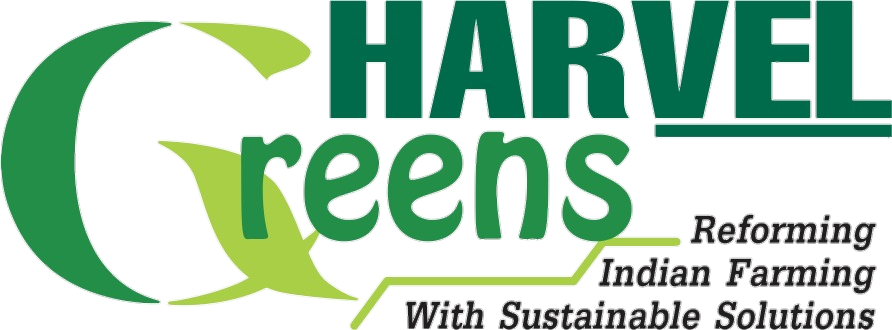Food security and nutrition are the most pressing challenges in today’s time, as most people are unable to afford healthy food. This is one of the prominent reasons behind the rising demand for sustainable farming. As per the 2019 EAT-Lancet commission regarding healthy diets from sustainable food systems, a shift to plant-based foods would help people across the globe to a sustainable and nutritious diet.
But what is sustainable farming? Well! It refers to the production of food items by using organic farming techniques that are beneficial in promoting profitability and improving public health. It is an important opportunity to solve varied global health and nutrition issues. Sensing its importance, many organizations are coming up with sustainable farming solutions and Harvel Greens is one of the pioneers in this line. In order to ensure enhanced crop yields and nutritious food, it is investing significantly in Greenhouse technology.
The Importance of greenhouse technology in sustainable farming

Greenhouse technology is the method of providing plants with favourable environmental conditions. It intends to protect the plants from wind, cold, extreme heat, and other adverse climatic conditions. It even saves the plants from disease and insects. Therefore, when adopted in the right manner, it leads to optimum crop productivity. The reliance of farmers on greenhouse technology is hence evident. They are adopting the modern ways of sustainable farming to manage various farm operations, crops and livestock. This method will hence stay for long and contribute to a greener environment.
Contribution of latest tools and technologies
Harvel Greens and other similar organizations are leveraging upscale tools and technologies to contribute their bit to ensuring sustainable farming solutions. Here are the prominent ones in this regard.
1. Digital Sensors
From cattle movement to aerial imagery, data collection to pH soil level and more, digital sensors check every feature of agriculture. The associated technology provides the farmers with specific data so that they can make better decisions for sustainable development.
2. Drones
The use of drones continues to grow in the field of agriculture. These machines carry an extensive array of sensors as well as cameras that can examine the crop growing conditions. Drones can also capture aerial imagery and can hence help to assess the diverse aspect of sustainable agriculture.
3. Biotechnology
A tool for crop breeders who develop plants with precise traits, biotechnology permits faster and more accurate breeding methods. No wonder, it leaves a deep effect on agriculture.
4. Cloud Computing
Surprising but true, farmers can apply cloud computing to make their farming methods more sustainable. It can assist farmers to get information related to the crop and soil. They can also monitor crop growth in different areas on a regular basis. Moreover, scientists can share modern cultivation techniques, use of fertilizers, etc. over the cloud to help farmers.
Advantages of Sustainable farming
Farmers all across the globe prefer adopting sustainable agriculture due to a range of advantages. This sector is undergoing a fourth revolution, triggered by the exponential use of information technology. Here are more insights about the importance of sustainable farming.
1. Use Renewable Energy Sources
As a part of sustainable farming in India, farmers prefer utilizing eco-friendly sources of energy such as hydropower, solar and wind farms. They can use solar panels in order to store solar energy for various important agricultural purposes like electrical fencing, water extractions through solar pumps and so on.
2. Environment Preservation
Safeguarding the environment is the foremost necessity to make the earth a greener and more sustainable place to survive. Various sustainable farming practices contribute to this most coveted and eco-friendly regime, such as the use of geothermal heat pumps, integrated pest management, hydroponics and aquaponics farming methods that are independent of soil, etc.
3. Economic Profitability
Economic sustainability signifies that a farm could sustain itself for long. Moreover, the profitability of this sector does not rest alone on a specific farm operation. In fact, it depends on the overall performance of the agriculture sector.
Sustainable farming solutions are all set to grow exponentially in the coming times. As per an estimate by the year 2050, there will be nearly 9.6 billion people and the need for food will increase. Naturally, food production will increase by say 70% and hence the need for sustainable agriculture will rise as well. The use of sustainable tools and technologies will contribute exceptionally to this purpose.
To know more about sustainable farming methods and their importance, you can always get in touch with Harvel Greens. By helping you implement cost-effective production methods, it can lead to a greener and more prosperous tomorrow. The organization is working hard to help the rapidly increasing urban population get superior quality food materials through organic and sustainable farming solutions.
